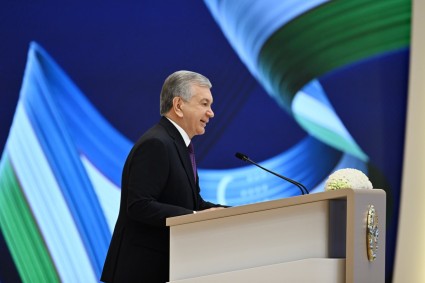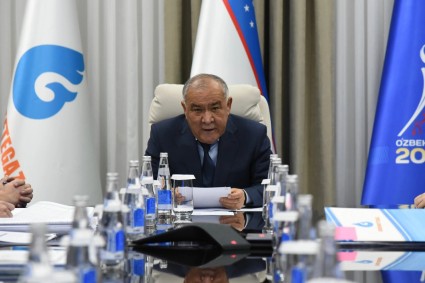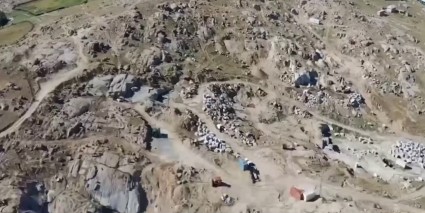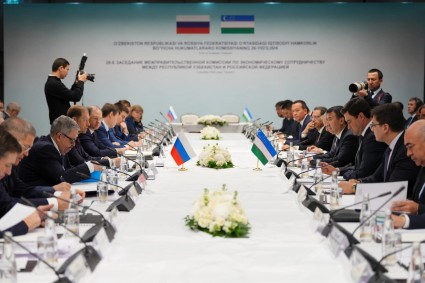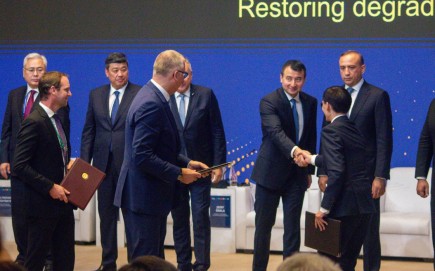The implications of President Shavkat Mirziyoyev’s re-election for Uzbekistan’s sovereign credit profile will depend on the effects on governance and the continued implementation of Mirziyoyev’s reform agenda, Fitch Ratings says.
The president could remain in office for another 14 years, with potentially negative implications for political accountability, but his government appears committed to reforming institutions as it seeks to shift to a more market-based economy.
Mirziyoyev won 87.1% of the vote in the 9 July snap presidential election, which he called after changes to the constitution, extending presidential terms to seven from five years, were approved in a referendum on 30 April. Mirziyoyev, president since 2016 and before that prime minister for 13 years, could remain in power until 2037 if he serves two more full terms. The election was described by international observers such as the OSCE as lacking genuine competition.
We believe the impact on the quality of governance and independence of institutions of extending Mirziyoyev’s rule will only become evident over time. Uzbekistan’s World Bank Worldwide Governance Indicators (WBGI) improved by 9pp in the 2021 ranking, to the 29th percentile overall, narrowing the gap with the ‘BB’ category median by 10pp. Further improvement in governance standards and an easing in political risk is a key positive rating sensitivity.
The WBGI do not yet capture geopolitical developments related to Russia’s invasion of Ukraine, or last year’s domestic unrest in the autonomous province of Karakalpakstan in response to a controversial constitutional amendment to remove its ability to convene an independence referendum. While President Mirziyoyev has said he accepts ‘constructive’ opposition to his policies, if parliament’s effectiveness in providing checks and balances is undermined, this could worsen perceptions of government accountability and lead to a reduction in WBGI.
There are signs that the government has become more responsive to public sentiment around governance in recent months. In January, Mirziyoyev dismissed the influential mayor of Tashkent following widespread public anger over energy shortages. There is currently strong momentum to reduce the size of the cabinet and bureaucracy, and introduce performance-linked standards to career progression. The Karakalpakstan proposal was abandoned following the unrest in the region.
The 2021 jump in WBGI rankings was driven particularly by the Regulatory Quality Index (+17pp) and Government Effectiveness Index (+11pp). The authorities are making efforts to improving institutional quality as they seek to introduce market mechanisms and reduce the state’s large footprint in the economy.
Plans to liberalise energy tariffs in mid-2023 could be an early indication of the appetite for further reforms. The economic policy agenda also includes privatising state-owned enterprises (a controlling stake in Ipoteka-Bank was sold Hungary’s OTP Bank in June); attracting substantial targeted foreign investment; improving policy coordination between the Ministry of Finance and the Central bank to help control inflation; and developing public-private partnerships (PPPs) in power, transport and social infrastructure worth USD13.4 billion in 2023-2026.
We forecast 2023 real GDP growth to remain robust at 4.7%, rising to 6% in 2024 and 5.8% in 2025 on strong investment growth (partly financed by IFIs), continued robust remittance inflows from Russia, and falling inflation (which may support energy tariff reform). Consistent implementation of structural reforms that boost GDP growth and macroeconomic stability, leading to significant narrowing of Uzbekistan's GDP per capita gap with peers, is our second positive rating sensitivity.
The economy has proved resilient to spillovers from the Ukraine war and Russia sanctions, although it is still uncertain how these risks will evolve. Commercial ties with Russia will remain deep and we believe President Mirziyoyev’s government will continue trying to balance this with strong ties with Western countries, particularly to avoid becoming subject to anti-Russia sanctions.



